Laboratory work: Izvestia uncovered car certification fraud
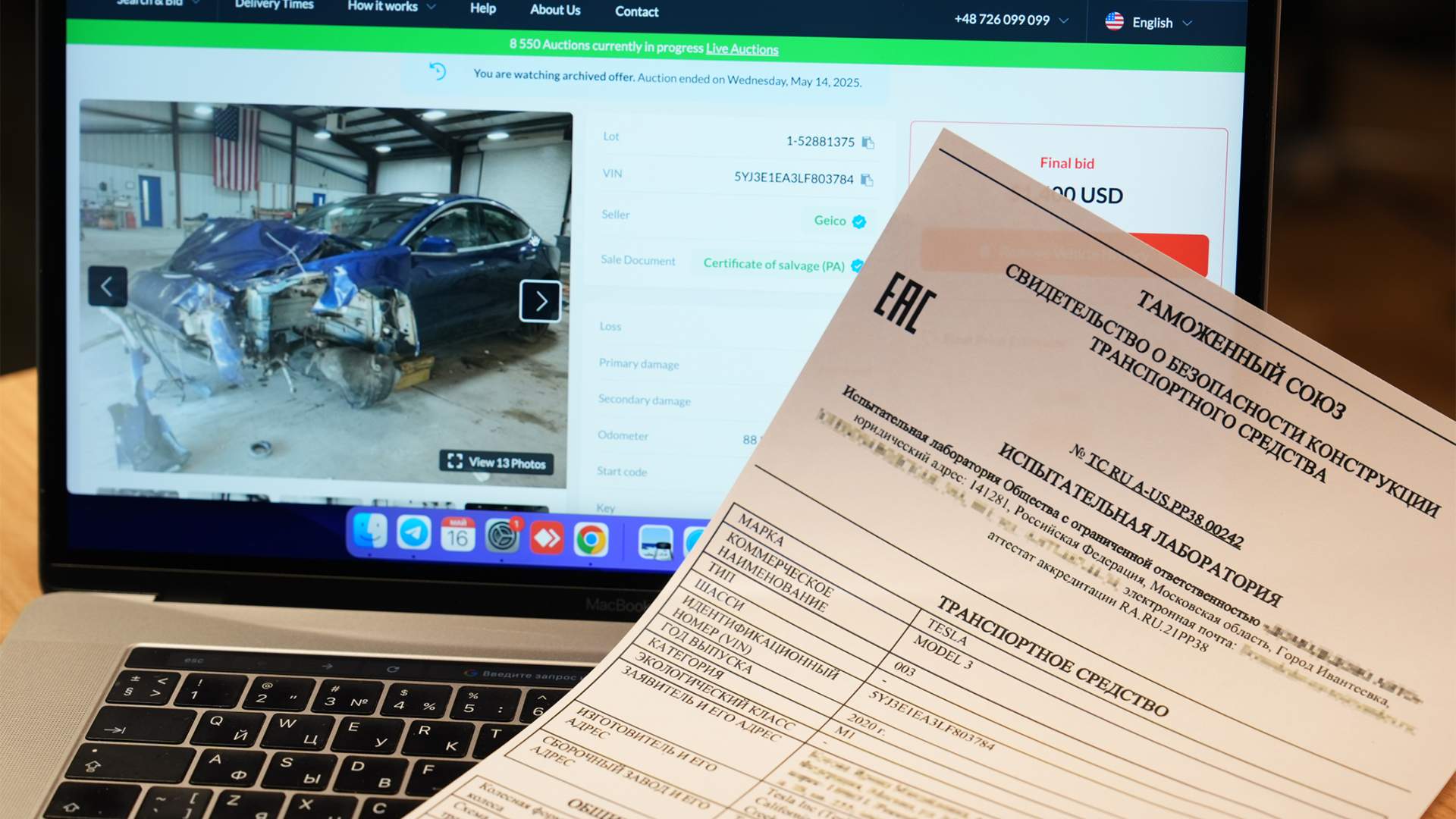
Testing laboratories that confirm the compliance of cars imported by private individuals with safety requirements certify them without having to present the car. These companies are ready to recognize as safe even those copies that are not physically present in Russia, including those seriously injured in an accident. This was confirmed by Izvestia, which, together with the National Automobile Union (NAS), managed to obtain safety certificates for vehicles on cars without presenting them to certification laboratories. Due to violations of the certification rules, thousands of car owners risk facing the termination of registration of their cars.
They waved without looking...
Izvestia has at its disposal a hybrid Lixiang L6, imported into the Russian Federation by a private individual. A vehicle safety certificate (SBCTS) was required for the car. At the initiative of the National Automobile Union and our request, on May 13, the car was parked for a day in a paid parking lot near the editorial office, which is confirmed by a cash receipt indicating the date and time of entry and exit from the parking lot. At the same time, the documents necessary for the certification of this car were sent to one of the testing centers in the Moscow region (the editorial office has the name). A few minutes later, a ready-made SBCTS was sent to the applicant's e-mail. At the same time, the current legislation requires the mandatory presence of a car in the laboratory during the certification procedure.
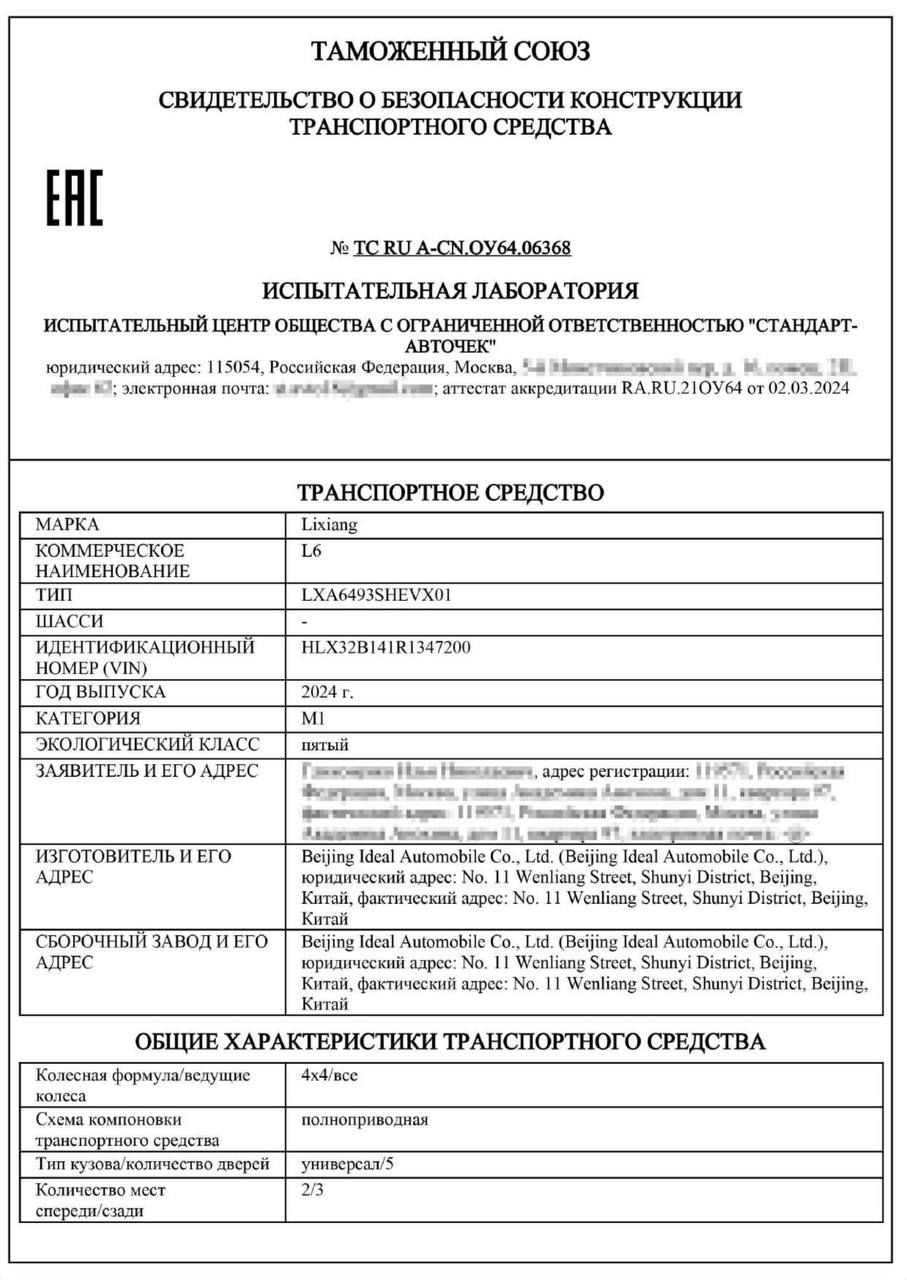
As the owner of the car "certified" in this way told Izvestia, who asked not to disclose his name, it cost 40 thousand rubles to receive the SBKTS, and "no contracts were signed, the money was transferred to a bank card."
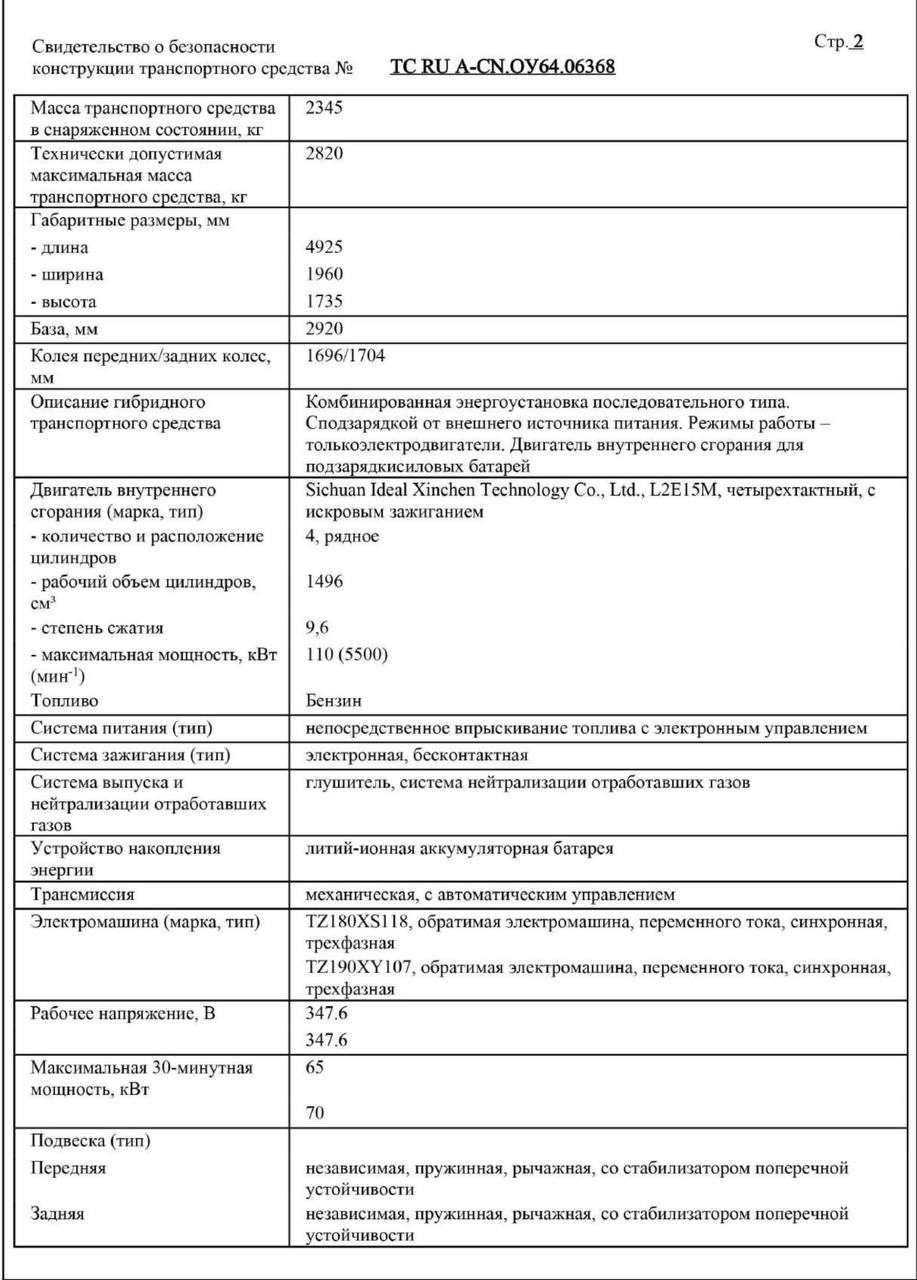
The received document (a copy is available to Izvestia) confirmed that the Lixiang L6 with the VIN number HLX32B141R1347200 "meets the requirements of the technical regulations of the Customs Union "On the safety of wheeled vehicles." The tests of the machine, as indicated in the SBCTS, were carried out in the rural village of Kraskovo in the Lyubertsy city district of the Moscow region. In reality, the car at that time, we recall, was located in the center of Moscow at 1 Party Lane. Apparently, the head of the "dacha" testing laboratory, who signed this document, has psychic abilities and is able to assess the safety of the car, being from it at a distance of several tens of kilometers. However, as Izvestia found out, individual "experts" can evaluate the car if it is located even further away.
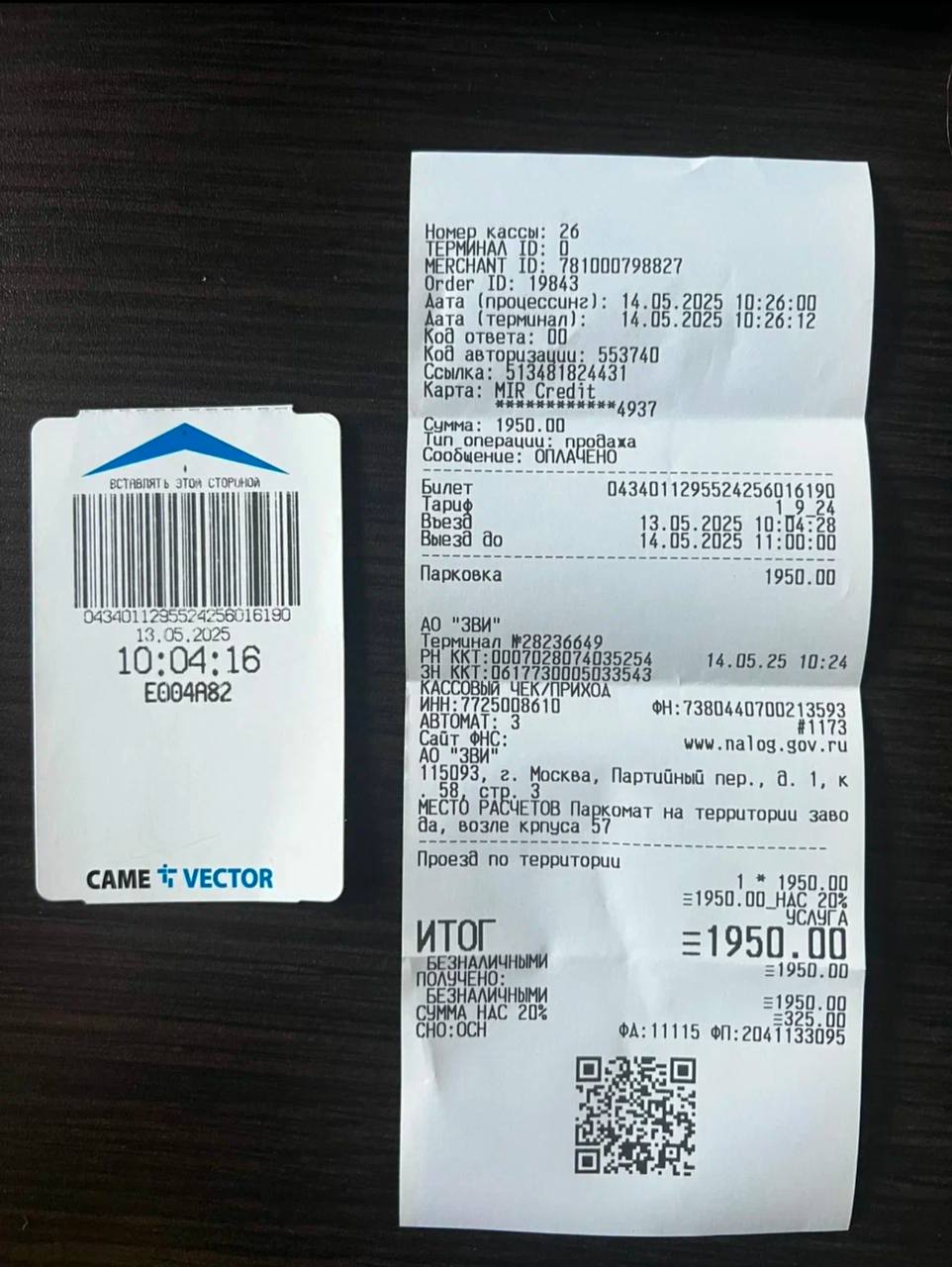
"The beaten one is lucky"
On May 14, at OUR initiative, a similar request for the SBCTS was sent to another car and to another testing laboratory. This time, the object of the experiment was a Tesla put up for online auction in Pittsburgh (USA, Pennsylvania). And again, a few minutes later, an e-mail from the testing laboratory in Ivanteevka near Moscow (the name is also known to the editorial staff) came to the SBKTS (Izvestia has a copy of it) for a Tesla Model 3 car with the VIN number 5YJ3E1EA3LF803784. Payment for these services (30 thousand rubles) was also made by transfer to a bank card.
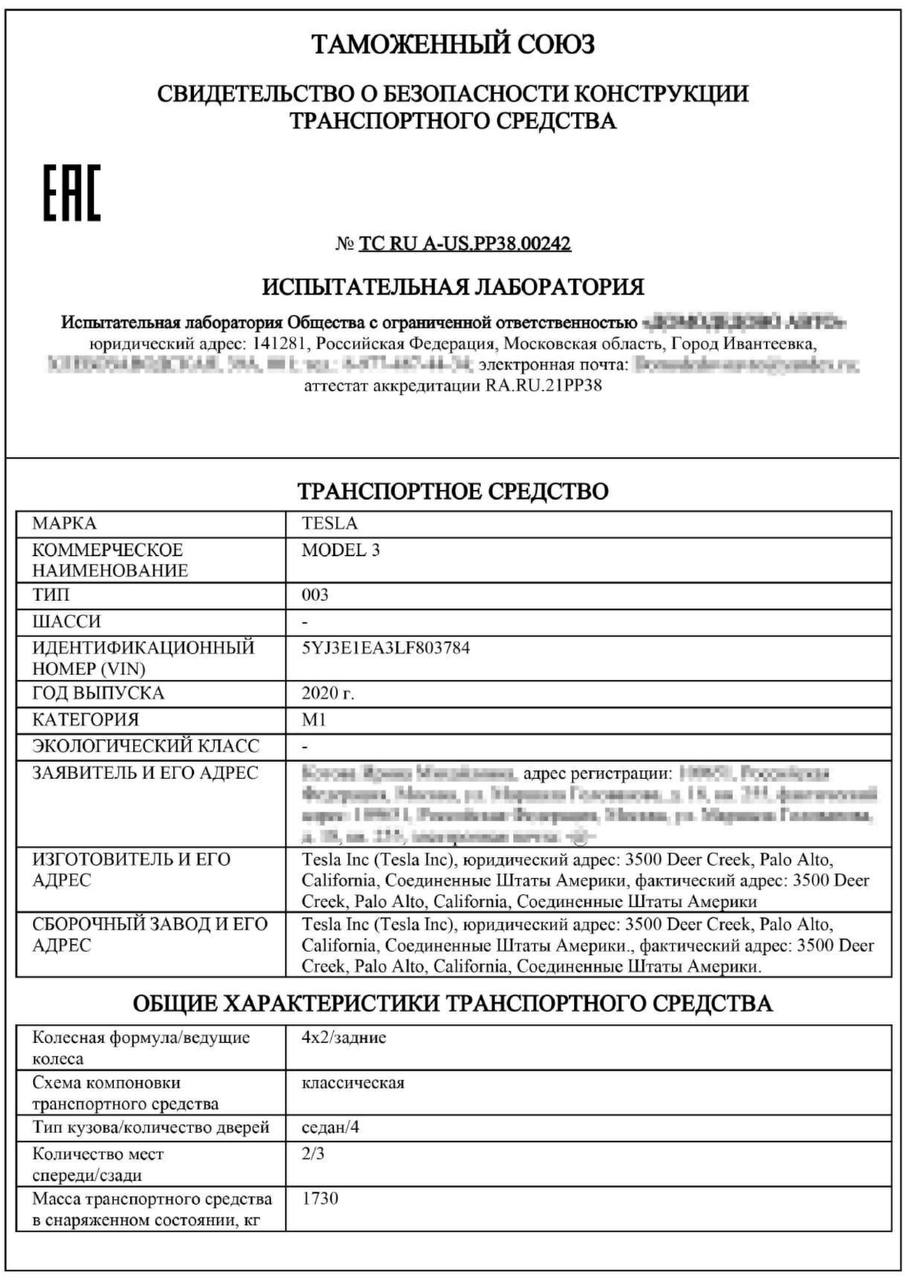
The abilities of the head of this laboratory turned out to be even better than those of his Kraskovsky colleague. The electric car, which was located on another continent, was also recognized as "meeting the requirements of the technical regulations of the Customs Union On the Safety of wheeled vehicles." However, the expert was unable to "see" across the ocean that the car had a serious injury (judging by the photos from the auction) There are no headlights, wheels, the front suspension is "uprooted", and the car itself is actually "tied in a knot".
Electronic vehicle passports were issued on the basis of both SBCTS. Electronic Passport JSC confirmed that at the time of work on this material, the documents were in the database and had the status "incomplete". This status only means that no recycling fee has been paid for these vehicles.
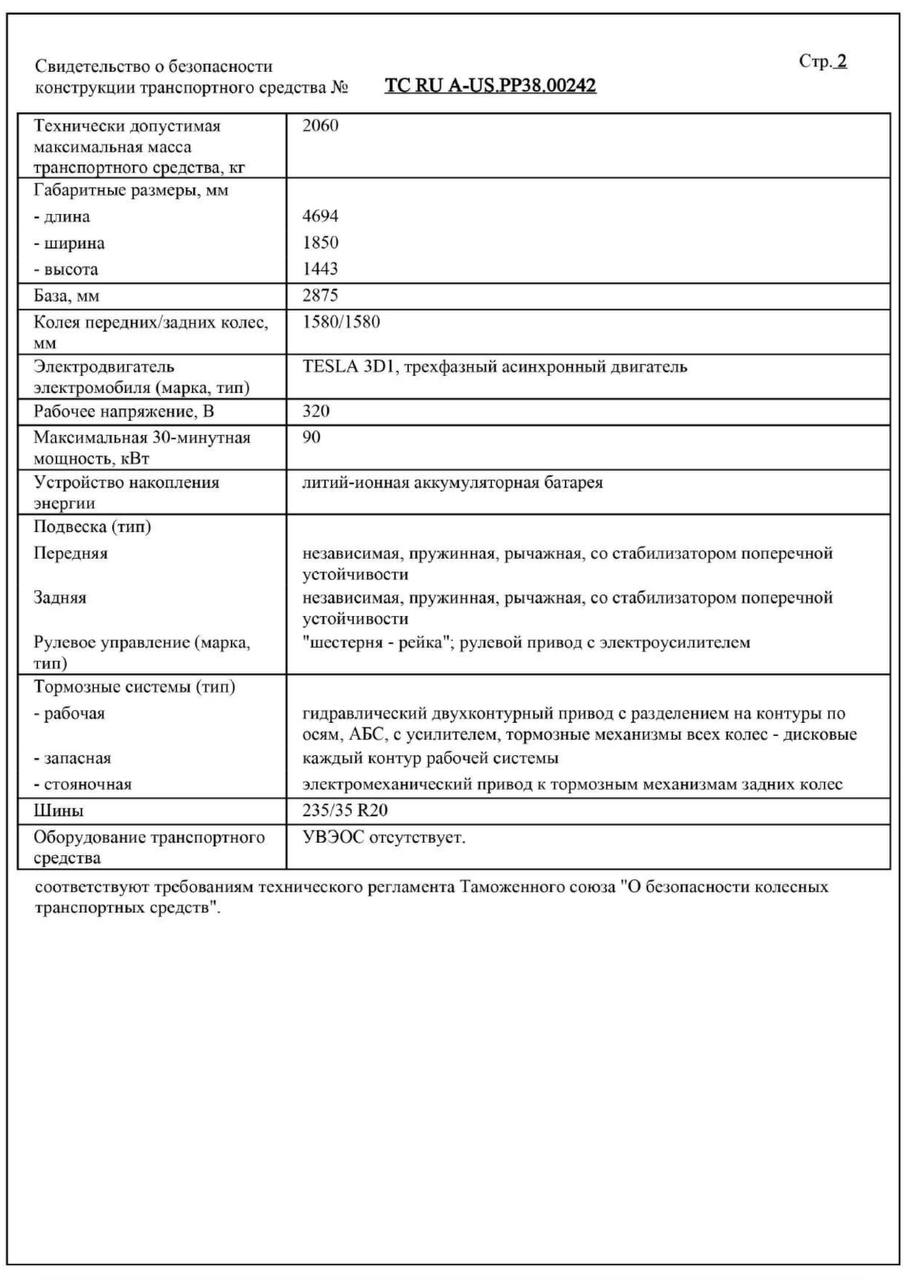
Izvestia sent requests to the laboratories at the addresses indicated in the SBCTS.
According to the current rules, when any vehicle is put into circulation in Russia, it is necessary to confirm its compliance with the requirements of the technical regulations on the Safety of Wheeled Vehicles. It is confirmed by one of three documents: a vehicle type approval (OTTS), a Single vehicle Safety certificate (ZOETS) or a vehicle Design Safety Certificate (SBCTS). If the first two relate to legal entities, then the SBCTS, which was introduced in 2010, is issued by private companies.
Verification will be initiated.
In Rosaccreditation, Izvestia was informed that, according to GOST 33670-2015, which defines the methods of testing vehicles to assess compliance with requirements, it is the car that is being tested that is declared for certification, and at the location of an accredited laboratory. The test reports are sent to the Rosaccreditation system within three days after the tests. The protocol should be accompanied by photographs of the car in the laboratory premises, which show the vehicle itself, its VIN number, tests of the braking system, a study of noise levels and CO2 / smoke content, listed in the department. After evaluating the copies of the SBCTS, which the publication submitted to the agency, Rosaccreditation noted that photographs are attached to the test reports of these vehicles.
"An analysis will be carried out, and if photo substitution is detected, the materials will be sent to law enforcement agencies, and an inspection will be initiated against the laboratory," the Rosaccreditation press service told Izvestia.
Rosstandart also confirmed to Izvestia that, according to current legislation, when verifying compliance with the requirements for individual vehicles, it must be submitted to an accredited testing laboratory. Thus, the registration of the SBCTS without the direct presentation of cars to the testing laboratory is a gross violation of the law, the department stressed.
— Rosstandart regularly monitors the correctness of the registration of the SBCTS. If violations are detected during the registration of the SBCTS, the agency takes response measures, up to the exclusion of the SBCTS from the register (cancellation of the SBCTS), the press service of Rosstandart reported.
The department said that earlier, based on the results of the work carried out, 500 SBCTS issued by an accredited laboratory outside the scope of accreditation were simultaneously canceled. At the same time, targeted work to clear the market of illegally issued SBCTS is carried out on an ongoing basis, the Federal Service for Technical Regulation and Metrology emphasized.
Rosstandart is currently conducting an analysis of the information provided by Izvestia, according to the results of which response measures will be taken within its competence, the agency said.
Denis Zagarin, a member of the public council at Rosaccreditation, head of the testing center at FSUE NAMI, told Izvestia that such cases are not widespread.
"Rosstandart and Rosaccreditation react harshly to them and conduct random inspections on a regular basis," he stressed.
We need control
The situation when cars are released to the market without any inspection, and safety documents are issued within a few minutes after transferring money to a card, is absolutely unacceptable, says NAS Vice President Jan Heitser.
— Unfortunately, the available examples contradict the statements of the regulatory authorities about restoring order in this area. Obviously, government oversight of both the vehicle certification procedure and the organizations that conduct it needs to be strengthened. The laboratories that issue certification documents without even looking at the car were accredited in record time — it is simply impossible to do this quickly without serious administrative support. They process hundreds of documents every month, but there are no checks," Jan Haitser told Izvestia.
There are also honest, real laboratories on the market that carry out the procedure according to all the rules, the NAS Vice president emphasized. These firms, which have invested millions of rubles in equipment and staff training, should not suffer from increased control in this area, he noted.
Maxim Kadakov, editor-in-chief of Za Rulem magazine, said that the number of cases of "remote certification" has increased dramatically after the mass appearance on the market of cars imported by private traders and an increase in demand for registration of CCC.
— Because of this, the car certification system with the SBCTS has actually discredited itself. Those who are engaged in real, rather than paper, certification of machines suffer from this — laboratories with appropriate testing sites, the necessary equipment and trained specialists," said Maxim Kadakov.
According to him, car owners who need to issue a CCC will most likely simply not take the car to a laboratory that will certify according to all the rules if there is an office "around the corner" that "will draw this document in a few minutes without looking at the car itself." At the same time, the expert notes, many car owners, agreeing to such a scheme, simply do not realize the possible consequences.
The carriage will turn into a pumpkin
Sergei Radko, a lawyer for the Freedom of Choice movement, told Izvestia about them. According to him, the SBCTS issued in this way and the EPTS issued on their basis may be declared invalid. And this, in turn, according to the law "On State Registration of Vehicles", may become a reason for termination of vehicle registration, he noted.
— One of the reasons for this is the presentation of documents that were subsequently recognized as forged, forged or invalid when registering the car. Thus, if the certification procedure was carried out in violation of the established procedure, the car owner may face the fact that the registration of his car will be terminated," explained Sergey Radko.
Unsuspecting buyers of cars for which the CCC was issued "remotely" may suffer from the actions of unscrupulous laboratories, who risk receiving a notice of termination of registration of the vehicle, the lawyer notes. In order to register such a car again, they will have to re-go through the certification procedure and obtain documents confirming its compliance with established safety requirements, Sergei Radko added.
The procedure for issuing SBCTS is standardized for all members of the Customs Union, said Ilya Pasenko, Senior associate at a.t.Legal Law firm. He stressed that the state carries out the accreditation of technical laboratories planning to issue SBCTS, for which it checks not only the documents of such a laboratory, but also its technical support.
— All accredited laboratories are included in the unified register of certification bodies for testing laboratories, — said the lawyer. — After the accreditation is granted, state control bodies have the right to check the work of laboratories by random inspection, but in reality this is a rather complicated process, which is being abused by some market participants.
If violations are identified, government agencies have ample opportunities to influence violators, Ilya Pasenko believes. For example, the accreditation of a technical laboratory that issued a security certificate with violations may be revoked, the safety certificates themselves are revoked by an administrative decision, after which the CTC with the security certificate ceases to be valid.
— The owner of the vehicle will not be able to sell it, or even use it, since the operation of vehicles that do not meet the safety criteria is not allowed, — said the expert. — The technical laboratory itself can be brought to administrative responsibility in the amount of up to 300 thousand rubles.
Thousands of Russian car owners are potentially at risk of encountering these problems. According to information provided to Izvestia by Electronic Passport JSC, from the beginning of 2024 to the present, a total of more than 6.2 thousand EPTS have been issued on the basis of SBCTS issued by only two laboratories tested during our experiment.
Переведено сервисом «Яндекс Переводчик»






